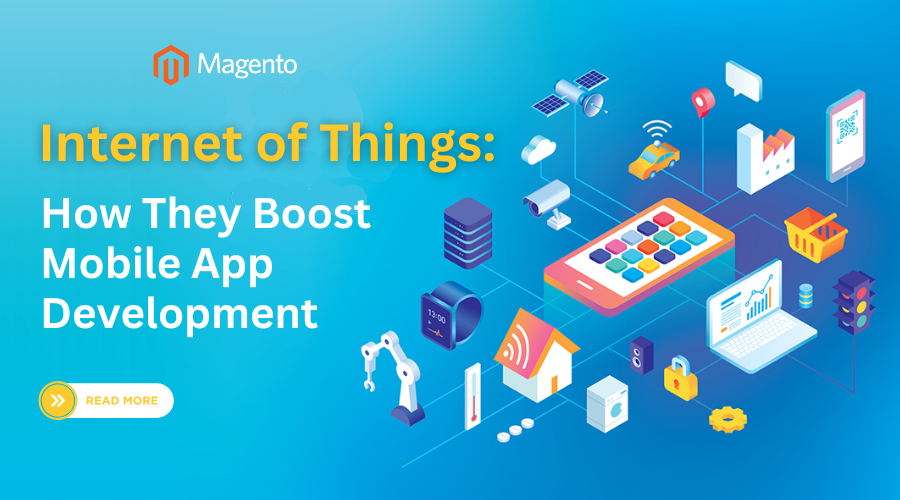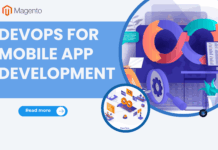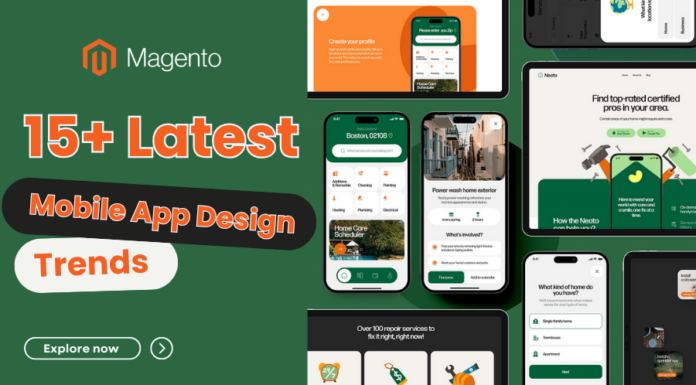
There is a rapid proliferation of wearable devices like smartwatches and fitness trackers, which are also growing within the Internet of Things (IoT) that is expanding rapidly. This has changed how mobile app development works in a big way. IoT is an umbrella term for smart devices that have sensors and software enabling them to be connected to each other and share data.
Wearables and Internet of Things devices gather enormous amounts of data with the help of a mobile app development agency, which apps may leverage to deliver personalized experiences.
Mobile app development being remodeled by IoT needs innovative solutions for issues like data security, interoperability, and user experience. Let’s learn more about how is IoT shaping the future.
Table of Contents
I. What Is Internet of Things in Mobile App Development?
The combination of the Internet of Things (IoT) technology with mobile application development is what IoT means in mobile app development. This means that a developer designs and creates applications for smart devices that can interact, control, and retrieve information from IoT devices.
By making it possible for mobile apps to do more than just collect data, programmers can generate groundbreaking solutions that may be used to monitor or control internet-enabled devices from anywhere using smartphones or tablets.
II. IoT’s Key Areas of Impact
Without further ado, let’s have a look at the key areas where IoT has its impact:
1. Health and Fitness Apps
One of the leading areas in which wearable & IoT impact is health and fitness apps. For example, smartwatches and fitness trackers collect myriad information concerning health like heart rate, sleep patterns and physical exercises. Mobile apps have taken advantage of this data to give feedback that is personalized for users, their physical well-being plans as well and health monitoring devices. This is changing how people take care of their lives by making real-time health data accessible and useful.
2. Smart Homes & Automation
IoT is driving the development of smart home technologies. Various aspects such as lighting, heating, security systems, and household appliances among others can now be controlled remotely by mobile applications. This integration not only makes life easier but also enhances energy efficiency and security at home. App makers are trying to create easy-to-use interfaces that work together easily for managing smart homes.
3. Industrial IoT (IIoT)
In industrial sectors, IoT applications improve mobile app development with a wide range of operational efficiencies and productivity levels within organizations. Mobile apps are being developed for real-time monitoring of machinery, inventory tracking, and supply chain management among others.

4. Retail
With smart shelves, personalized suggestions, and automated inventory management, IoT is revolutionizing the retail environment. Shoppers are having more interesting shopping experiences, and merchants are learning a lot about how customers behave.
5. Transportation
Smart traffic management systems, Internet of Things-enabled logistics, and connected automobiles are enhancing safety, easing traffic, and streamlining transportation networks.
6. Industrial Automation
IoT sensors and devices are optimizing supply chain management, operations, and predictive maintenance in factories and other industrial settings. This is resulting in cost savings and increased efficiency.
These solutions enable predictive maintenance thus reducing downtime while improving cost effectiveness. Developers must therefore construct strong reliable apps capable of handling large chunks of data whilst at the same time having real-time analytics.
III. Challenges of App Development in IoT
Now it is time to have a look at the main challenges faced in app development while using IoT
1. Data Security and Privacy
Amongst the different challenges encountered, data security and privacy are the primary ones in developing IoT applications. With numerous connected devices transmitting sensitive details that can be used for cyber-attacks and data breaches, there is an increased risk of such incidents occurring.
This needs developers to put in place the provision of strong encryption, secure communication protocols, and rigorous authentication mechanisms to safeguard user information.
2. Interoperability
IoT gadgets are made by many manufacturers using diverse communication protocols. Ensuring interoperability among these devices, as well as facilitating a smooth user experience, is not easy. Apps fail at this level. Developers must create apps that can work with different types of devices and operating systems.

3. Scalability
Developing scalable applications that can effectively process, store, and analyze vast amounts of data generated by multiple devices often makes up most of Internet of Things solutions. Therefore, a deep understanding of cloud computing, big data technologies, and efficient coding practices will result in the development of such applications.
4. User Experience
Keeping a user-friendly interface becomes more important with the increasing complexity of IoT apps. Functionality has to be balanced against simplicity to enable users to navigate easily through the features of the app. This requires intuitive design interfaces that respond fast and include clear instructions.
5. Connectivity and Compatibility
It can be challenging to maintain smooth connectivity across wearables, Internet of Things (IoT) devices, and mobile apps, particularly when there are disparate communication protocols and standards.
IV. Benefits of IoT in Mobile App Development
The symbiosis between wearables and IoT is transforming how mobile app development is done, thereby introducing a new epoch of connectivity and innovation. Smartwatches, fitness trackers, and other wearable devices have invaded our lives as inseparable companions, providing personalized data and insights at an unprecedented level.

Simultaneously, the Internet of Things (IoT) has been expanding to become part of a network that links up more and more devices/systems, including smart homes and industrial machines. Developers now have the opportunity to create dynamic applications that can make significant impacts across numerous sectors facilitated by this convergence.
However, there are also challenges such as data security, interoperability, and scalability associated with it that need to be overcome carefully to utilize its immense potential in this rapidly changing technological environment.
Conclusion
Wearables have converged with IoT; this has brought about a paradigm shift in mobile app development thus creating room for originality in various fields. Health and fitness applications, smart home automation systems, and industrial Internet of Things (IoT) among others, are some areas experiencing transformative changes.
Nonetheless, developers must cope with problems relating to data security, interoperability, scalability, and user experience. Solution-based responses will require technical know-how combined with innovative thought processes that emphasize end-users.
Author bio
 | Ankit Agarwal is the CEO of Dean Infotech, a software development agency that specializes in Salesforce development & Salesforce Marketing Cloud Implementation services. He is responsible for overseeing the company’s operations and ensuring client satisfaction. Through his insightful blog posts, he generously imparts his vast knowledge, making complex tech concepts accessible to a wider audience. |












![[SALE OFF] Discount 30% All Premium Extensions On Christmas And New Year 2025 christmas-and-new-year-2025](https://landofcoder.b-cdn.net/wp-content/uploads/2024/12/christmas-and-new-year-2025-1-218x150.png)






